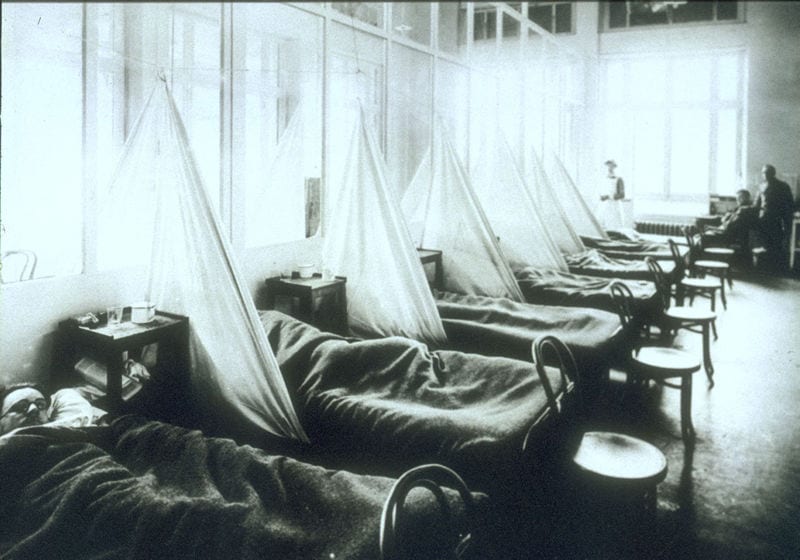Trending Now
I listened to a book awhile back titled The Coming Plague, and both the title and the contents left this epidemic-terrified girl without a doubt that, at some point, a plague would arrive and spell the end for a good portion of the world’s population.
My two cents? It’s not going to be something all horrifying and exotic like ebola, but probably a flu mutation akin to Spanish flu in virulency and mortality rate.
Not that most of us will be alive to see whether I’m wrong or right, just putting it out there.
It turns out that I’m not alone in my morbid doom and gloom – Bill Gates is right there with me.

Image Credit: Wikipedia
If he (and I) are correct, the potential numbers are staggering – an event like the 1918 Spanish flu epidemic could kill around 30 million people in under 6 months – and if there’s one thing everyone agrees on, it’s that no one is prepared.
Gates was speaking at an event hosted by the Massachusetts Medical Society and the New England Journal of Medicine when he made some remarks on the subject, stating that even though medical advancements are making great strides as far as quality of life for millions around the globe, there are some areas that are being ignored – and that it might cost us dearly as soon as the next decade.
“There’s one area though where the world isn’t making much progress, and that’s pandemic preparedness.”

A Spanish flu ward
Image Credit: Wikipedia
His fears stem from several factors: the emergence of new pathogens, the re-emergence of old pathogens due to climate change, population increases, human encroachment on the environment, and the ease with which we’re able to travel great distances.
Gates presented a simulation that modeled how a new flu would cross the globe and the wreckage it could leave in its wake.
“In the case of biological threats, that sense of urgency is lacking. The world needs to prepare for pandemics in the same serious way it prepares for war.”
It’s not that nothing is being done – we have antiviral drugs now that would improve survival rates and antibiotics to treat secondary infections like pneumonia, neither of which were available to the poor sufferers in 1918. We’re also homing in on a universal flu vaccine, and the Bill and Melinda Gates Foundation is upping the ante there with $12 million in grants to encourage further testing and development.

Image Credit: Kjetil Ree, CC BY-SA 3.0
Even though we’re getting better at identifying and diagnosing flu, there’s definitely room for improvement.
“There needs to be better communication between militaries and governments to help coordinate responses,” Gates said – not that the private sector should be cut out of the picture.
Our connections might be our Achilles heel when it comes to stopping the spread of the next pandemic, but if we work together to prepare for the inevitable, they could also be our greatest strengths.






